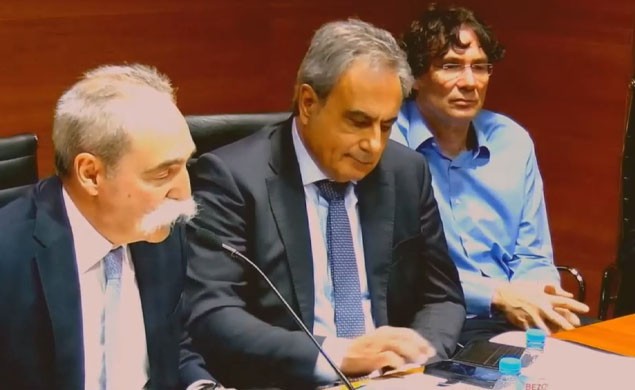Spain’s role in quantum technology

In a conference with GMV as an invited guest, the Royal Academy of Engineering of Spain and the Engineering Institute of Spain delved into the highly topical and cross-cutting field of quantum technology. The event addressed Spain’s role in developing this technology, with speakers from public and private stakeholders.
Among them, representing GMV, was Luis Fernando Álvarez-Gascón, general manager of Secure e-Solutions at GMV, who shared the main projects currently taking place at the Spanish multinational technology company, which, he noted, “is celebrating forty years since its founding as a spin-off of the Polytechnic University of Madrid.”
As Álvarez-Gascón explained, the company has brought the potential of these quantum technologies to its fields of expertise, such as the integration of space systems. He highlighted GMV’s leadership in this area, especially as a key player in the development of satellite navigation systems, such as the navigation and cybersecurity features of the Galileo system. He also cited the company’s status “as a trusted supplier of the Spanish Ministry of Defense and international security cooperation organizations.”
In the field of quantum computing, “we participated in the integration of the first quantum computer with 100% European technology, helping Europe to once again take a leading role in a field where it had once lagged behind, focusing on learning and developing application cases.” In this regard, “GMV is leading the consortium developing the CUCO project, applying quantum computing to the optimization of Earth observation satellite operations.” Furthermore, “we’re leading one of the Center for the Development of Industrial Technology agricultural AI missions, with the goal of using digital technology (AI, robotics, quantum technology) in predicting agricultural production.” As for communications, Álvarez-Gascón cited the company’s participation in CARAMUEL, the first Spanish quantum key distribution (QKD) geostationary mission, as well as the significant expectations surrounding the mission.
After reviewing the company’s work in this field, he discussed the current battle for talent, in a context in which competition in the Spanish labor market is increasing due to the entry of companies with little presence in the country, but which benefit from new trends such as remote working.
Finally, he emphasized the need to launch a national quantum technology strategy that will bring together Spanish science, technology, and industry, and maintain a dual vision that can address the needs of civil society while at the same time reinforcing national security.